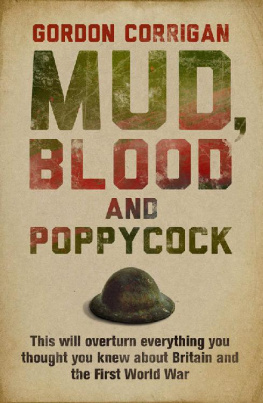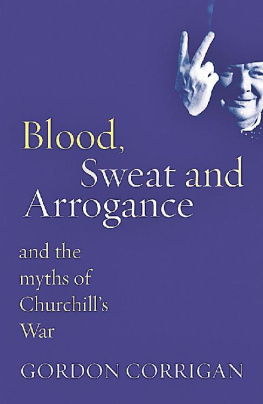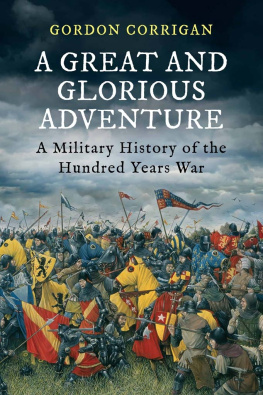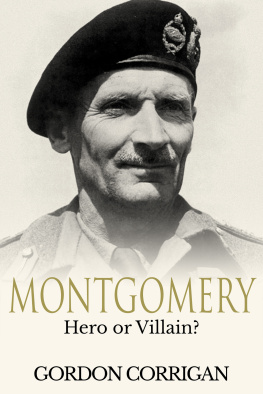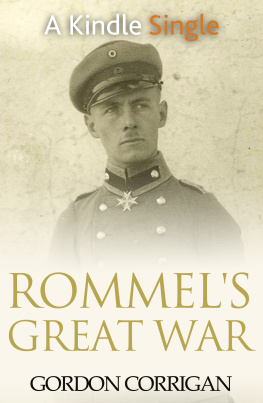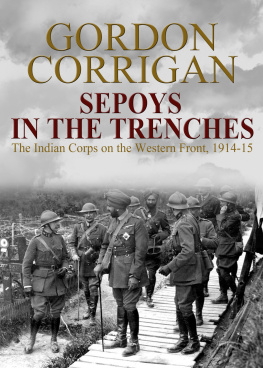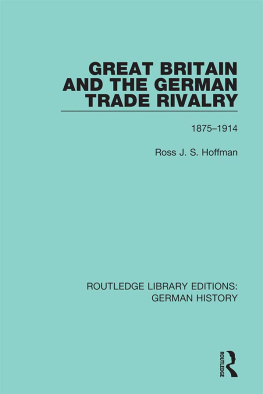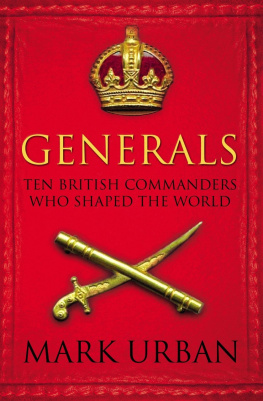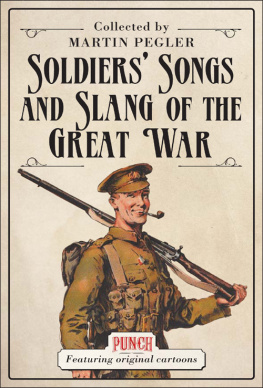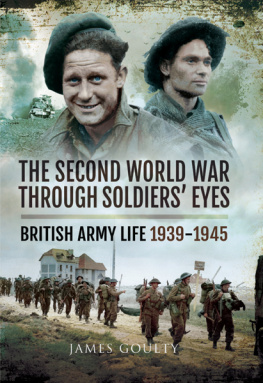Gordon Corrigan has set out to expose this popular view, or myth, as quite simply not in accordance with fact. To this task he brings a mass of evidence, coupled with an ability to write clear, crisp, highly readable narrative... Mud, Blood and Poppycock should be in every school library and studied with an open mind by all who teach the young about the Great War
Correlli Barnett, Daily Mail
This is no mere hagiography or turgid, blow-by-blow account of battles which, frankly, often seem repetitive. Corrigans book is a fascinating read because he sets it up as a trial by jury. Each chapter (and they can be read in what order you please) takes a specific myth of the Great War and subjects it to a test of evidence. The result even if you want to disagree with Corrigans overall thesis is gripping
George Kerevan, Scotsman
Corrigan peppers his book with statements that read outrageously at first but which he then backs up with devastating statistics
Andrew Roberts, Mail on Sunday
Corrigan has fashioned a pugnacious case, stripping away many of the misunderstandings and falsehoods that have settled as if they were established truths in the popular imagination
Graham Stewart, Spectator
A welcome addition to the revisionist view of World War One... Corrigan shows how the British embraced new military technology and developed dynamic new tactics to overcome the stalemate of trench warfare. A good argumentative tone is struck throughout the book
Tim Newark, Military Illustrated
MUD, BLOOD AND POPPYCOCK
Britain and the First World War
GORDON CORRIGAN
CASSELL
CONTENTS
MAPS AND DIAGRAMS
MAPS
DIAGRAMS
INTRODUCTION
Everyone knows because it is endlessly repeated in newspapers, books and on radio and television that if the British dead of the First World War were to be instantly resurrected and then formed up and marched past the Cenotaph, the column would take four and a half days to pass. Actually it wouldnt. The British lost 704,208 dead in the Great War, and if they were to form up in three ranks and march at the standard British army speed of 120 thirty-inch paces to the minute, they would pass in one day, fifteen hours and seven minutes. It is still an impressive statistic, but utterly meaningless. It is about as useful as saying that if all the paper clips used in the City of London in a year were laid end to end they would reach to the moon, or to New York, or halfway round the world. The figure is quoted, usually around 11 November each year, to illustrate the scale of British casualties in the war of 191418. It might mean more if it were coupled with the fact that the French dead, in the same formation, would take three days, five hours and thirty-seven minutes to complete the manoeuvre, and the Germans four days, eighteen hours and sixteen minutes. Even this would not help very much, because the French population was six million fewer than that of Great Britain, and the German population fifteen million more.
The popular British view of the Great War is of a useless slaughter of hundreds of thousands of patriotic volunteers, flung against barbed wire and machine guns by stupid generals who never went anywhere near the front line. When these young men could do no more, they were hauled before kangaroo courts, given no opportunity to defend themselves, and then taken out and shot at dawn. The facts are that over 200 British generals were killed, wounded or captured in the war, and that of the five million men who passed through the British Army 2,300 were sentenced to death by military courts, of whom ninety per cent were pardoned.
A recent schoolchildrens visit to the Western Front required the children to visit the British cemeteries in France and Belgium and answer questions, one of which was Why are there so few officers graves? The answer sought, according to the teacher present, was that the officers took no part in the attack, being safely behind the lines enjoying a good breakfast while their men went to their deaths. The teacher and by extension much of the British public was presumably unaware that the four companies of an infantry battalion going into the attack, 640 soldiers in all, would be led by around twenty-three officers, assuming the battalion was fully up to strength with no one away on leave or courses. Between 1914 and 1918 twelve per cent of all other ranks were killed, and seventeen per cent of the officers.
The Great War, the Kaisers War, the First World War, call it what you will, is of contemporary interest to the British people because nearly every family in Britain had somebody killed in it. Or did they? According to the official census reports, there were approximately 9,800,000 households in Britain in 1914. Statistically then, only one family in fourteen lost a member. Even allowing for extended family groupings, to include uncles, cousins and in-laws, this is not every family in Britain. Perhaps everyone knew somebody who was killed? In certain parts of the country that is undoubtedly true, largely because of the way in which we recruited our infantry, but there were large swathes of the nation from where no one was killed.
It cannot be a comfort to those widows, sons, daughters, brothers and sisters, all ageing now, who remember a loved one killed in the war, when they are told, as they all too often are, that their menfolk died in vain and that their sacrifice was a pointless waste. It is, however, not surprising that the general public attitude should be thus. As experience of war recedes and anyone who was old enough to take part in the Second World War is in their mid-seventies now and when no one under the age of sixty has any experience of National Service, it cannot be surprising that the great majority of the British people have no understanding of war or any insight into what an army does and how it operates. We live in a liberal society, where individual rights are given ever greater priority and legislation outlaws any form of discrimination on the grounds of race, gender, sexual orientation, age or disability. The British army of today, let alone that of nearly a century ago, seems a strange body indeed. As standards of health and material well-being increase, and as governments become more and more accountable to the electorate, so concepts of compulsion, unthinking obedience to orders, constant risk of death or maiming, and subordination of the individual to the corporate aim appear increasingly alien. It is said that the army should reflect society, but what an army does, and what in the final analysis it is for, do not reflect society. The army defends society but it cannot share its values, for if it does it cannot do its job. An army at war may be more representative of society than one at peace, but even then it does not reflect it, being largely composed of young, physically fit males. An army may well be used for humanitarian purposes, ranging from flood relief to the distribution of food, and from peacemaking to peacekeeping. Its structure, skills, mobility and discipline make it very good at these tasks, but an army exists to fight wars when and if these occur. A war is not a moral crusade, whatever the propagandists at the time may say; it is a trial of strength with each army striving its utmost to destroy the other by all means open to it. Some years ago the British armys small-arms training manual was titled Shoot to Kill. This led to protests from libertarians who claimed that such a title instilled aggression. Quite. Should the army have entitled its pamphlet Shoot to Miss? Soldiers are aggressive: they have to be because their job is to kill other soldiers and to do it efficiently and without moral scruple. In war individual morality must be subject to the priorities of the state, for if it is not then the army will lose, and all those hard-won human rights will count for naught.
Next page
